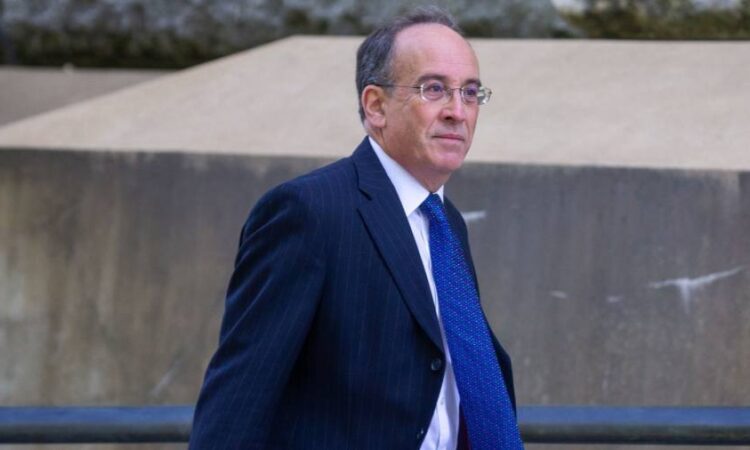
Plans to pre-fund the UK’s deposit insurance scheme would be an “extra tax” on lenders, affecting their ability to extend loans to cash-strapped households and businesses, the building societies body has warned.
The Bank of England is considering an overhaul of the UK’s Financial Services Compensation Scheme that will probably involve pre-funding the system so that cash will be immediately available to pay depositors of failed banks.
The move follows the fallout from March’s collapse of Silicon Valley Bank, when the BoE was forced to warn customers of the lender’s UK arm of a seven-day wait for their guaranteed deposits if it had collapsed, due to the scheme’s funding needs.
Policymakers hope that bolstering the system would insulate banks and building societies from future deposit runs, but Robin Fieth, chief executive of the Building Societies Association, said that lenders’ pre-funding the system would have damaging consequences.
“The question we’d ask is, given we have a strong financial framework in the UK . . . do we need to put aside even more capital in the form of a pre-funded failure pot fund which we’re diverting away from growth?” said Fieth. “Our starting point would be the existing scheme works really well in that context, we would prefer to continue supporting the mortgage market.”
He added that any levy should reflect the type of deposits that institutions take. The BSA would be resistant to putting in additional funds for small and medium-sized businesses, as its members do not hold large deposits from the sector, he said.
The BoE has yet to publish any details on the design of the revised scheme, which is also expected to increase the current £85,000 limit covering deposits to levels similar to $250,000 for the pre-funded US system.
Eamonn White, a former BoE official who now advises the IMF and others on deposit guarantee schemes and policies dealing with failing banks, said the central bank could look to pre-fund the scheme to the tune of £30bn to £60bn. This would allow the BoE to cover payouts for two to four small banks simultaneously, the level recommended by the IMF’s financial sector assessment of the UK last year.
The timeframe for fully funding the scheme could be between five and 10 years, White suggested, which implies a levy of £12bn to £6bn per year on the UK’s banks and building societies, which would likely all be asked to pay since they all benefit from the stability of a banking sector.
While the levy may be a burden for some individual institutions, some experts believe it is unlikely to affect overall UK lending due to the size of the market. According to BoE data, the UK lending market included £1.8tn of loans to individuals, £200bn of loans to small business and almost £340bn of loans to larger companies as of February.
The latest dispatch from the BoE’s Financial Policy Committee — which looks at marketwide risks — said banks were not pulling back lending to conserve capital but that there was some evidence of tightening lending due to fears about customers’ abilities to repay loans in a worsening economy.
Fieth also raised concerns about a disparity in savings between households.
While the overall balance for household deposits was growing by almost £6bn in February to £1.9tn following an expected post-Christmas decline, he said that stratification seemed to be worsening.
“On the top line it’s quite healthy, but once you start digging into it, there’s ‘haves’ at one end and ‘have nots’ at the other,” said Fieth. “There’s probably some additional stress too in the middle where there wasn’t when inflation was lower.”







